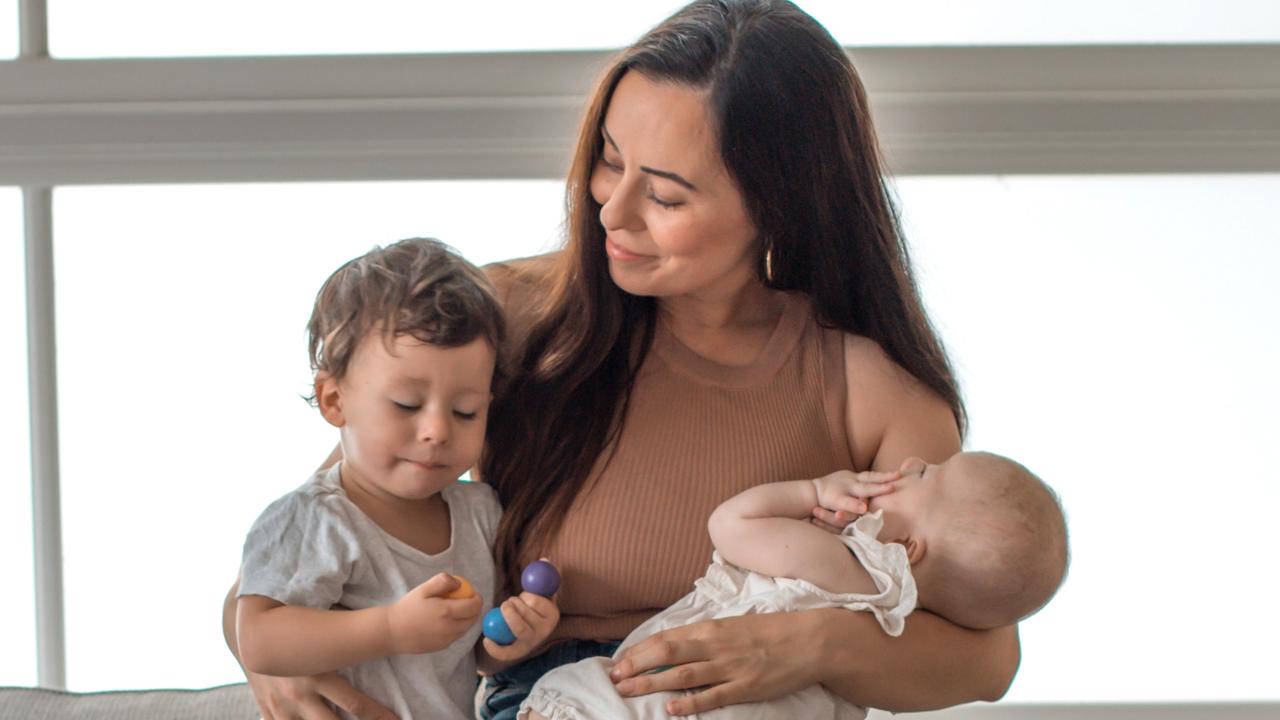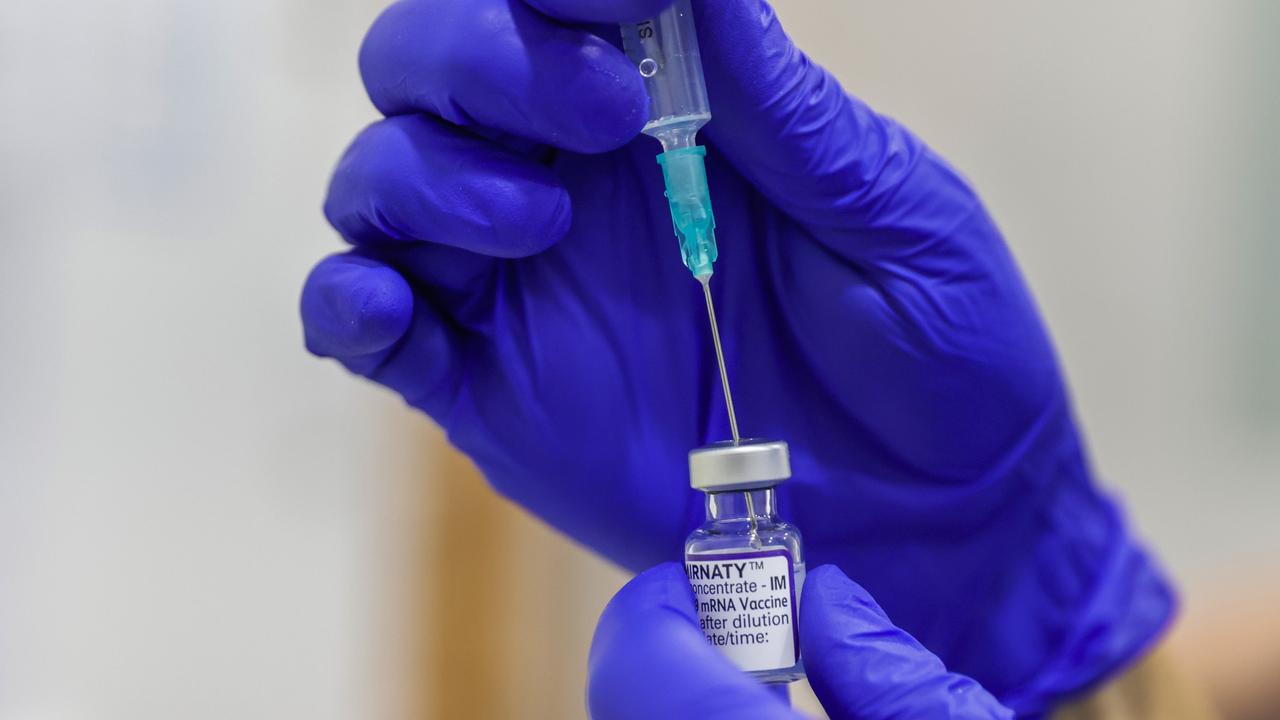Covid NSW: Major changes to isolation rules announced
NSW’s quarantine rules have changed, with authorities warning travellers not to line up for PCR tests as they’re “unlikely” to get their results back in time. The PM says the definition of a “close contact” will also be overhauled at tomorrow’s snap national cabinet meeting.
NSW Coronavirus News
Don't miss out on the headlines from NSW Coronavirus News. Followed categories will be added to My News.
NSW people travelling interstate have been told not to line up in PCR test queues as they’re “unlikely” to get their results back in time for travel.
Health officials said the waiting period for test results had blown out to 72 hours, outside the window required for interstate travel into Queensland, Tasmania and the Northern Territory.
Health Minister Brad Hazzard said pathology labs were struggling with the backlog of tests.
He encouraged people who were due to go on a holiday to Queensland to skip PCR testing queues and wait for a rapid test on January 1 when Queensland will accept negative rapid tests for arriving travellers.
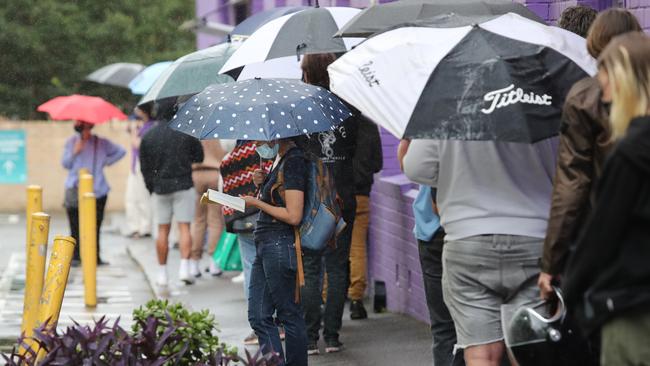
“If you’re going to Queensland, and you’re in the queue, get out of the queue, you don’t need to be there,” he said.
Chief health officer Dr Kerry Chant said today’s testing numbers of more than 157,000 people reflected tests done over the past few days.
“We are seeing doubling (of cases) every two to three, four days,” she said.
She urged people who are using rapid tests to still be “linked into care”.
“Anyone who has a positive RAT test should go and get a PCR test and speak to their healthcare provider,” she said.
“When you have a higher positive rate … we probably aren’t getting to all the cases.”
Earlier on Wednesday, Queensland scrapped PCR testing requirements with Premier Annastacia Palaszczuk announcing the regime would end as of January 1.
From then, travellers will be required to test negative to a rapid antigen test instead within 72 hours of travel and fill out a declaration form to prove they are not infected.
Travellers to the Northern Territory and Tasmania still need to get a negative PCR test within 72 hours before travel.
Health officials also announced priority testing would be given to patients classed as “clinically urgent”.
These include people who have COVID-19 symptoms or a positive rapid antigen test, are a household contact with a confirmed COVID-19 positive case, have been in a venue where there has been high transmission such as a club or have been in a vulnerable setting like an aged care facility where there is an ongoing outbreak.
NSW has reported a record 11,201 new Covid-19 cases and three new deaths on Wednesday.
There are 625 people in hospital with the virus, with 61 of those in intensive care.
Premier Dominic Perrottet said NSW had capacity for “well over 200” people in ICU during the Delta wave and the healthcare system remains “strong” despite more than 600 people being in hospital right now.
“If you look at the delta outbreak, you saw lower cases, higher hospitalisations, higher ICU,” he said.
He also ruled out the prospect of an upcoming lockdown explaining that he will only bring in targeted restrictions if he sees evidence to require them.
Mr Perrottet added that he was in favour of reducing the isolation period for asymptomatic cases and the issue will be a priority for him in National Cabinet.
“I’ve had really constructive discussions with the Prime Minister … I’d be very supportive,” he said.
MAJOR CHANGE TO ISOLATION RULES
NSW Health has confirmed major changes to NSW’s isolation rules, with close contacts now only required to isolate until they receive a negative PCR test.
The definition of close or casual contacts looks to have been scrapped, with NSW Health officials confirming the seven-day isolation period rule would be binned for most close contacts on Wednesday as the state recorded 11,201 new infections and three deaths.
Authorities said they would now only contact “a small number” of exposed people to direct them into self-isolation, such as healthcare workers or other high-risk groups.
“People who have been confirmed as Covid-19 cases are asked to tell those they have recently spent time with that they have tested positive,” NSW Health said in a statement.
“NSW Health will only contact a small number of exposed people to direct them into self-isolation under the public health order,” it said.
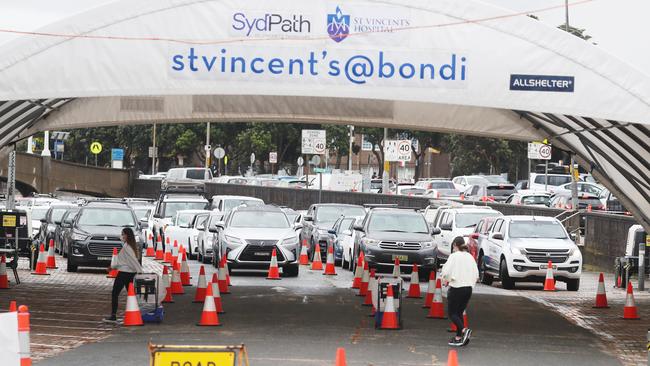
The changed approach will see “most people” who have been around a positive case required to test and isolate until they are negative, regardless of how long they have spent with the infected person.
“When the negative test result is received, they can leave isolation. NSW Health asks that they continue to be aware of any developing Covid-19 symptoms,” NSW Health’s statement read.
“If symptoms do later appear, people are asked to immediately seek a PCR test, and isolate until a negative test is received.”
People with no symptoms are “advised” by officials to take a rapid antigen test before going out “as an additional precaution”.
It comes as testing capacity at NSW sites remains under “enormous pressure” after the state almost doubled its daily Covid figures overnight.
Numbers rocketed up to 11,201 new cases, an enormous jump from the previous day’s total of 6062 cases.
Three more deaths have been recorded, 625 people are now in hospital and 61 people are in intensive care.
About 95 per cent of eligible people aged over 16 have had a single dose of a Covid vaccine, while 93.5 per cent are fully vaccinated.
‘CLOSE CONTACT’ WILL BE REDEFINED: PM
The definition of a close contact will be “redefined” tomorrow at a snap National Cabinet meeting, the Prime Minister has declared.
Scott Morrison said on Wednesday that state premiers would convene tomorrow instead of next week to look at settings that better deal with the “challenge” of Omicron.
“What we are looking to do tomorrow is to ensure we get a definition of close contact and which tests are used in what circumstances and how they are provided to manage a large volume of cases,” Mr Morrison said.
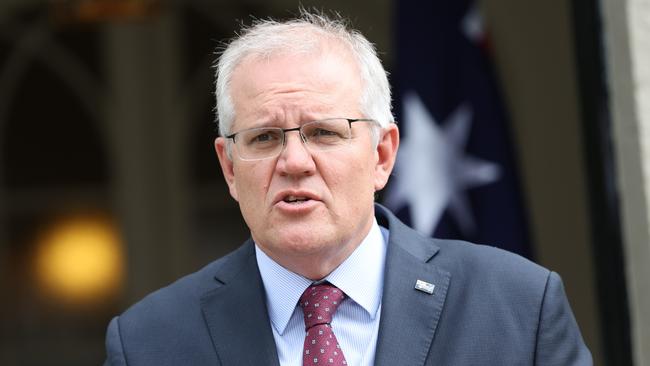
“The challenge of Omicron is to deal, as I said last week, with the volume and that is a very different challenge to what we had in previous phases of the epidemic …
“We just can’t have everybody just being taken out of circulation because they just happen to be at a particular place at a particular time.”
A close contact will become a household contact or a household-like, another accommodation-type setting of a confirmed case only who as spent more than four hours with the infected person, he said.
It comes following NSW reclassifying close and casual contacts in a similar way last week.
Mr Morrison said he hoped to see all of the states “move towards adopting” strategies like NSW and Victoria like thinning out testing requirements and reclassifying contacts.
Quarantine for close contacts will be slashed to seven days and a negative day six rapid antigen test would see people in isolation freed if the new definition is agreed on.
Close contacts would also take another RAT test on day 12.
The PM said on Wednesday that the current definition of a close contact was “impractical” as case numbers continue to skyrocket.
“It’s an impractical way to live with the virus in this next phase. And so it is important that we move to a new definition of close contact that enables Australia to keep moving,” Mr Morrison said.
“If you have QR coded in somewhere and you found out there has been a case you don’t have to rush off and get in a long queue. You just have to monitor your symptoms.”
Mr Morrison also urged Australians not to panic-buy RAT tests “because you may have been somewhere at some point in time”.
“Close contacts need to have RAT tests. People who are symptomatic need to have RAT tests … what’s not necessary is for people to be going out and bulk purchasing RAT tests and having them every other day on a casual basis,” he said.
Mr Morrison said PCR testing would be focused on people who return a positive RAT test, and for high risk groups such as international arrivals and healthcare workers as well as vulnerable groups such as aged care residents, the immunocompromised and Indigenous Australians.
“These PCR tests, that’s what they’re for,” he said.
The PM added Australia had received another four million rapid antigen tests, six million were on their way and $375 million of extra funding had now been set aside to help create a national RAT test stockpile.
But he said the tests were for Commonwealth responsibilities such as residential aged care facilities and vulnerable communities, while state governments were responsible for sourcing their own tests.
“State governments are always responsible for securing these RAT tests, providing them to people directly, and we will share the costs 50/50,” Mr Morrison said.
The rollout of the booster shot is progressing six times as fast as the first dose vaccine rollout, and Australia has more than 20 million doses available, he said.
Chief Medical Officer Paul Kelly said lower hospitalisation rates than those seen during the heat of the Delta outbreak were a “positive sign” of the impact of vaccination but that current testing regimes wouldn’t help against the Omicron strain.
“Certainly a number of cases, as the PM has mentioned, is putting, as we’ve seen, a strain on our PCR supplies,” Prof Kelly said.
“We have to move to a place where they’re used in a way that will be most beneficial to firstly controlling the pandemic, secondly, giving that clinical information that’s needed for individuals and thirdly, guiding our response in terms of close contacts.”
He added that two-thirds of all people in ICU in NSW were unvaccinated, and urged those who haven’t yet had the jab to “reconsider” — and reminded parents to book their boosted shots in and to register children aged five to eleven for their vaccinations, which begin on January 10.

